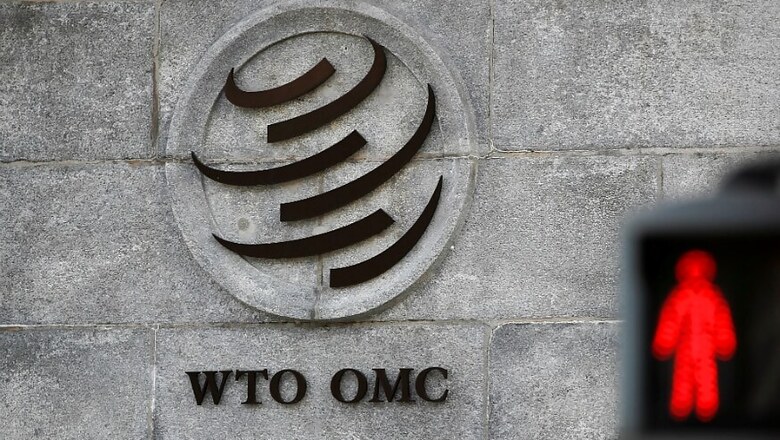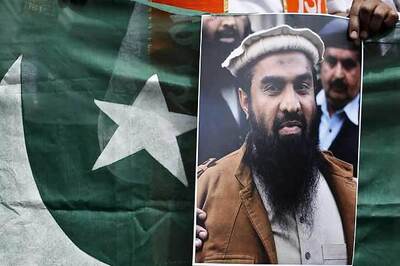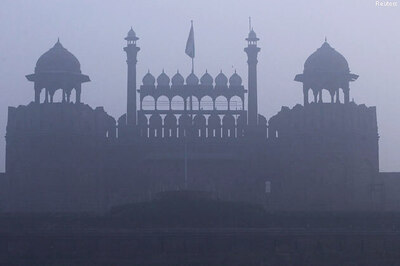
views
New Delhi: India has pitched for elimination of trade-distorting subsidies on agriculture and ensuring differential treatment to developing countries by the WTO members, the commerce ministry said on Tuesday.
Quoting Commerce Minister Piyush Goyal, it said that during his participation in an informal ministerial gathering in Davos last week, he also made a case for working out a permanent solution for public stockholding for food security purposes.
During his intervention at the gathering, he said the current challenges throw up some key priorities for the forthcoming ministerial meeting of WTO members in June in Nur-Sultan, Kazakhstan.
On the World Trade Organization's (WTO) appellate body for dispute settlement, he said early restoration of the full strength of the body will help in realising the objectives of the WTO.
"The agenda for WTO reforms should be balanced and inclusive, to address the historic asymmetries in the Uruguay Round agreements" he said.
He said that a "good starting point for the reform agenda" of the WTO would be "removing the imbalances" in the agreement on agriculture, and ensuring a level-playing field, particularly for developing economies.
He further said that as long-standing proponents of WTO reform, developing countries have, for almost 20 years, sought the elimination of unequal and trade-distorting entitlements in the Agreement on Agriculture.
"Another positive step will be to build upon the work of the last several years, and to implement existing mandates such as a permanent solution for public stockholding for food security purposes," he said.
The minister also said developing countries, particularly the least-developed countries (LDCs), have not been able to achieve an equitable share in world trade, therefore, the continued availability of special and differential treatment, for these countries, is imperative for them to address their development aspirations.
Goyal said the reform process should not be used to further restrict the flexibilities, and policy space required by developing countries, to better integrate with the global trading system.
"It should open more opportunities for them, taking into account the contrasting levels of prosperity, unequal levels of economic development, and vast disparity in human development indicators, so that global trade becomes sustainable," he added.
Goyal said that significant outcome at Kazakhstan is essential, for further strengthening the role of the WTO in global trade.
"To achieve this, he added that it is necessary to put in place a structured process that will help finalise a limited list of focussed, doable and fair proposals, that may be concluded at MC12 (12th ministerial conference meet)," he said.
Talking about fisheries subsidies, he said unregulated industrial fishing by some nations, has led to a major depletion of the global marine stock.
"There is an urgent need for strong disciplines to regulate harmful fisheries subsidies in order to ensure the sustainable use of marine resources for securing inter-generational equity," he said.
The minister cautioned that countries need to be cognizant of the existence of a large population of subsistence and artisanal fishermen in LDCs and developing countries who rely on fishing for their basic livelihood.
He urged that as they have no other livelihood options, all nations must collectively care for this vulnerable population of marginalised fishermen.
"Adequate policy space, to ensure a decent standard of living for subsistence-level fishermen, by modernizing their fishing fleet and expanding their fishing capacity, is a critical outcome for India," he said.




















Comments
0 comment